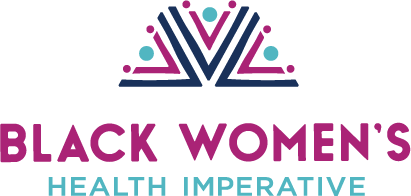Machine Learning In Medical Appointment Scheduling Causes Racial Disparity In Access to Care But Doesn’t Have To
ATLANTA – (October 17, 2019) – Appointment scheduling in medical provider offices is one of the most common ways patients access needed health services. Yet a new paper, Overbooked and Overlooked: Machine Learning and Racial Bias in Medical Appointment Scheduling suggests that racial bias in electronic health records systems’ patient scheduling algorithms may contribute to an already inequitable healthcare experience by overbooking Black patients.
This study, led by Santa Clara University data scientist, Michele Samorani, was conducted by an interdisciplinary team of fellow data scientists, Shannon Harris of Virginia Commonwealth University and Haibing Lu of Santa Clara, a public health expert Linda Goler Blount of BWHI, and a business ethicist, Michael Santoro of Santa Clara University, is the first to measure and address racial disparities that take place in appointment scheduling.
According to the paper, machine learning, employed in appointment scheduling to identify patients with the greatest no-show risk, uses mathematical formulas to optimize the provider’s schedule and reduce clinic costs by eliminating provider overtime and idle periods. As a result, patients the algorithm predicts as having a high no-show probability, are double booked to reduce the impact of no-shows on clinic operations. While overbooking leads to longer wait times and frustration for patients, what the authors found was startling: in a large specialty clinic, black patients were more likely to be overbooked than white patients.
In response, the authors developed an algorithm that completely eliminates racial disparity in scheduling with no significant increase in cost when compared to the traditional predictive overbooking framework.
“What was amazing about our results is that the elimination of racial disparity comes at no cost. Our methodology is very good at quickly finding these near-optimal schedules”, said Michele Samorani, Assistant Professor, Information Systems and Analytics at the Leavey School of Business at Santa Clara University and lead author on the paper. “This clearly indicates that there is no reason to for a group of patients to have longer waiting times for the sake of efficiency.”
Overbooking not only leads to longer wait times, it is also associated with negative patient service experiences. The paper suggests that these negative experiences can lead to the lack of patient engagement and even more no-shows to future appointments thus, even more overbooking.
Linda Goler Blount, President and CEO of The Black Women’s Health Imperative, and one of the paper’s authors, agrees. ”The development and application of technology are not without bias and not only perpetuate but can, in fact, cause negative patient experiences leading to worsening patient outcomes and disparities,” said Blount.
Overbooked and Overlooked reviewed several models to seek solutions that could level the playing field for patients. The report suggests that there are ways that scheduling can be a win-win for systems and the patients they serve, and they should be explored.
For More Information:
Michele Samorani, Ph.D.
Assistant Professor
Information Systems and Analytics
Leavey School of Business
Santa Clara University
msamorani@scu.edu
or
Monica Coleman
Chief Communications Officer
Black Women’s Health Imperative
mcoleman@bwhi.org




